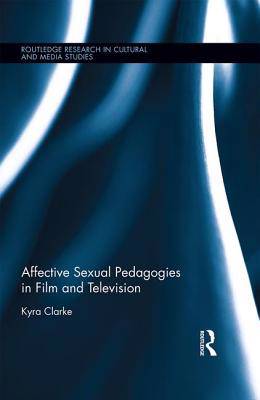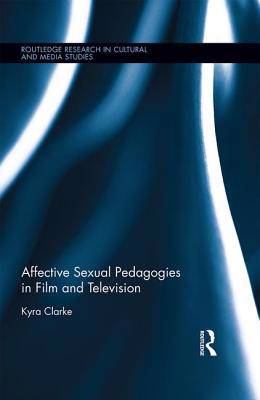
- Afhalen na 1 uur in een winkel met voorraad
- Gratis thuislevering in België vanaf € 30
- Ruim aanbod met 7 miljoen producten
- Afhalen na 1 uur in een winkel met voorraad
- Gratis thuislevering in België vanaf € 30
- Ruim aanbod met 7 miljoen producten
Omschrijving
Popular film and television hold valuable potential for learning about sex and sexuality beyond the information-based model of sex education currently in schools. This book argues that the representation of complicated--or "messy"--relationships in these popular cultural forms makes them potent as affective pedagogical moments. It endeavours to develop new sexual literacies by contemplating how pedagogical moments, that is, fleeting moments which disrupt expectations or create discomfort, might enrich the available discourses of sexuality and gender, especially those available to adolescents. In Part One, Clarke critiques the heteronormative discourses of sex education that produce youth in particularly gendered ways, noting that "rationality" is often expected to govern experiences that are embodied and arguably inherently incoherent. Part Two explores public intimacy, contemplating the often overlapping and confused boundaries between public and private.
Specificaties
Betrokkenen
- Auteur(s):
- Uitgeverij:
Inhoud
- Aantal bladzijden:
- 262
- Taal:
- Engels
- Reeks:
Eigenschappen
- Productcode (EAN):
- 9781138120495
- Verschijningsdatum:
- 6/03/2017
- Uitvoering:
- Hardcover
- Formaat:
- Genaaid
- Afmetingen:
- 157 mm x 231 mm
- Gewicht:
- 498 g

Alleen bij Standaard Boekhandel
Beoordelingen
We publiceren alleen reviews die voldoen aan de voorwaarden voor reviews. Bekijk onze voorwaarden voor reviews.











